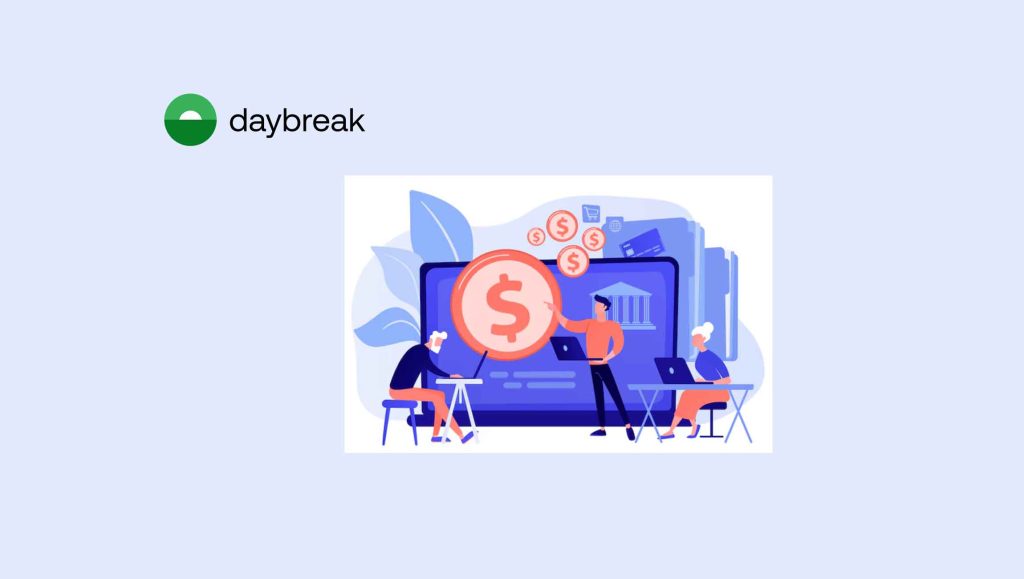Tell us about your journey into Marketing and Sales Technology. How did you arrive at Zoho?
My journey with Zoho started a long time ago when the company started, 23 years back. I started with building products for various product lines, moved to Product Management and from there added more focus in Marketing and Pre-Sales, making my role more overall product ownership. This meant I gained responsibility for a product category covering everything that is required to ensure a product is selling well and that customers are happy using it.
We started off our geographical expansion in 2018 and I moved to Europe to head up the European Operations. Europe, including the UK, is an important market for us – the second largest after the USA.
During the time that I was more solely focused on Marketing and Sales, we worked to the same philosophy as we do now: we build products and ensure they are visible across all relevant channels so prospects looking for a solution to a specific problem can find us and engage with us easily. The right SEO strategy is now of huge importance to enable this as every business today is online.
Tell us how Sales teams leverage Zoho’s various platforms for their operations?
Zoho runs on Zoho. Our own customer-facing team, whether Sales, Marketing or Support, has always used our products to engage with customers and to do their own work efficiently. We use our Sales, Marketing and Support tools in our Zoho CRM+ bundle, part of our CRM platform, to understand our customers better and guide the way we engage with them using metrics from the tools to enable customer success.
Other benefits include insights to understand how a prospect came to engage with us, such as through an event, or a webinar and what they were most interested in during that engagement. This provides context so our team can take a very personalized approach to further engagement when looking to convert a prospect to a customer. Often this is only possible to deliver efficiently through a truly integrated platform.
How does Zoho manage and optimize Sales channels within GDPR regulations?
At Zoho, our business model has never monetized customer data. We have never looked to take profit or any kind of benefit from using our customer data. We have certainly welcomed GDPR as it is in-line with our own thinking that goes all the way back over the last 23 years of our existence. Designed to help customers meet the privacy standards set by the EU, Zoho CRM has multiple GDPR-centric enhancements that provide a streamlined mechanism, from data collection to processing activities, to handling data subject rights.
What advice do you have for Sales Technology teams to 100% comply and advocate GDPR regulations within the EU?
I would recommend using the right tools that ensure customer data is not compromised and not shared with people that shouldn’t have access to it. GDPR compliant tools should be used right across Sales, Marketing and Support which means that no matter what the activity, all data involved meets compliance guidelines. This removes a further worry from activity day-to-day as compliance is automated.
Recommended: Salestech Interview With Bill Hu, VP Of Sales, Certain
How does your market in Europe compare with North America, APAC and the Middle West?
All regions across the world have variations which determine the strategy taken when operating within them. One primary factor for us is the maturity of technology adoption within a region. North America is the forerunner when it comes to the early adoption of technology, whereas Europe is slightly more conservative. Even in Europe, all countries have differences here. Western European countries such as the UK, Scandinavian countries and The Netherlands, for example, are equally fast when it comes to technology adoption. Some other countries are slower and the same goes with APAC and the Middle East, which are typically later adopters.
Therefore, we tailor our approach as in some countries and regions we are introducing technology that the market has never seen before, while in other more mature markets we are bringing in technology that is not specifically greenfield but could offer a better solution to what is already in use in the market.
As a part of our European strategy, we need to create presence and positioning for our brand, and the various products and product segments in their respective categories. So all categories – Sales, Marketing, HR, Finance, for example – require an understanding of our competition, which can vary from country to country. There may be global competitors too, and we have to bear in mind who is a strong glocal player and get a good picture of who will be coming up against us.
We may alter our partner strategy depending on the market too. We use technology partners and Value-Added Resellers (VARs) who sell our products, implement services and solutions on the Zoho platform in each of our markets and we also have teams that sell directly to customers. We have a dual model there as part of the Sales approach to the market. Sometimes we rely more heavily on the partner network in non-English language markets as local partners can resonate and engage more effectively with customers, for example.
Our philosophy is to take a long-term approach to products, technology, employees, partnership and also customer relations. This means various aspects of our business need to align with these core values.
What are the core strategies you focus on Zoho for Global Business Development? How does it impact your revenue channels?
One core strategy is effective communication of our vision to all stakeholders, such as customers, partners, and internal teams, so that everyone has a consistent understanding of our strategy and objectives to work in the right way to achieve these, including any regional variations.
Business Development strategy varies from country to country depending on several aspects such as market, channel and partner dynamics. Global Business Development can involve building relationships with large customers, communicating our vision and ensuring that they’re fully engaged so we can communicate our value. This often includes training end users on how they can benefit and gain value from the use of the products. We can bundle all of these into something that is global applicable across regions. Like any business approach, we assess the specific country needs and deliver our solutions in a way that addresses those needs in a way that the local market will best respond.
In non-English speaking markets, we also have partners who work with us on many initiatives such as events, direct customer engagement or content translation, for example.
How different is Customer Success for Marketing and Sales Technology products compared to other technologies, for instance, IT SaaS and Cloud?
Broadly speaking customer success has the same objective irrespective of which markets you serve or which markets your product categories fall into. You assess what is most important to the customer and prioritize what they need based on those objectives.
For example, what is important to a Marketing and Sales audience is, reaching out to their customers and engaging with them in a timely manner. Customer success here is ensuring they are trained to use the products and educated on their benefits so that they focus on implementing and using them to their full capabilities to help them achieve their business goals and drive further success.
It doesn’t depend on the type of technology but there are fundamental principles that can be applied across all categories – all markets, all products, all technologies that are good measures of customer success.
How do you differentiate – Customer Success vs. Customer Service at Zoho?
Customer success has a much broader scope than customer service. Customer service is the support that we offer for troubleshooting specific problems and is some of the touchpoints along the customer journey. However, customer success is the entire journey, if executed well, to develop and retain a happy customer.
Customer service could include where a customer needs some technical support or some advice or even things like help to renew their licenses through Sales support. Another part of customer success could be to include customers in part of the data program or the pilot or trial program of a new product that they may be interested in.
Customer success is about all of the aspects mentioned in my previous response and for Zoho, it means we communicate our vision successfully and help our customers become more efficient, productive and collaborative. That’s what customers want. Customer service is just one aspect; a small part of what makes up customer success.
Essentially customer success is something that we do not fully control but something that we are a critical part of. We can contribute through education and providing the right tools to help a customer achieve their goals, help them implement new solutions and support them as they continue to use our solutions so they are using them in the right way to get the best business results.
In order to deliver customer success, we have to ask ourselves continuously: How do you onboard customers? How do you help customers develop best practices? How do you ensure customers use the solutions in the right way on an ongoing basis?
However, it also relies on customers being committed to rolling things out in the right way and remains dedicated to ensuring the solutions are intrinsic to all relevant teams or across the entire business depends on the goals they are setting out to achieve. It is when they meet those goals that true customer success is achieved.
Also Read: SalesTech Interview With Sam Nazari, VP Of Customer Success At Evolv Technologies
How do Sales teams reach their Sales targets with Zoho’s Marketing-Sales Automation? What ROI numbers have your customers achieved?
Zoho’s Sales and Marketing suite helps a Salesperson get a very good understanding of the customer, which is crucial in proposing the right solution, understanding their motivations and how Zoho’s solution can address the challenges that the customer faces. This better understanding of the customer results in:
- Faster response to the customer resulting in shorter Sales cycles
- Higher quality of response resulting in better customer experience
- Better collaboration with other Zoho teams ensuring continuing of high-quality experience for the customer as they continue their journey from an evaluating prospect to a paid customer.
- Internally the level of automation that the Zoho’s suite of products for Sales and Marketing provides ensures higher employee productivity for day to day tasks.
All aspects combine to help the Sales team achieve its Sales target.
When it comes to customer ROI, it can vary from 40% to well over a few hundred percentages. More than just an ROI percentage, it provides them with a refreshing new way to work and engage with their customers, which is hard to measure. It also provides a better collaborative environment for their teams to work together to win customers.
Define Customer Success for B2B Marketing and Sales. What are your Customer Service benchmarks at Zoho?
We look at customer success holistically to understand all aspects that go on to contribute. We will judge success based on areas such as:
– How well was the solution explained to the customer?
– How quickly were they able to evaluate of the Zoho solution and how long and difficult was the learning curve?
– How was the overall experience with Zoho personnel at each stage of the customer journey and the parameters to evaluate it such as knowledge level, ability to articulate the solution, responsiveness, reachability, and ethical conduct?
After-Sales, we also like to assess:
– How fast have customers been able to implement our solution to solve their problems?
– How effectively does the Zoho solution solve the problem?
What is the Sales culture that you represent? Why is it important to build a Sales-focused culture for any business?
We take a long-term approach around customer engagement and retention. This sometimes means that we sacrifice short-term gain for long-term benefit. If the customer wants more evaluation time or wants to look at other solutions we would be happy to accommodate that. It’s not about just closing a deal at any cost.
We don’t have a Sales-driven culture at Zoho. We have a customer-driven culture. If you’re Sales-driven you will try to close a deal no matter what, even if it is not in the best interest of the customer. This also means recommending approaches that are right for the customer rather than just for our company. We believe that putting the customer needs first results in a better outcome for both the customer and us in the long run.
Therefore we’d say it is more important to build a business that is centered around the customer. Happy customers mean long-term relationships, word of mouth recommendations and ambassadors.
We don’t tie our customers into forced long-term contracts as we want happy customers who stay with us because they are satisfied, rather than because they have to according to the contract they have signed. To ensure customer happiness we have to put them first from the very first part of their journey with us, which is when we are first selling our solutions to them.
While our Salespeople do work to targets, in our culture at Zoho it is a softer approach than a hard numbers game.
How do you achieve this culture-balance at Zoho? What percentage of this is driven by the application of technology, reporting tools, and coaching?
A large part of how we achieve a customer-focused culture is driven by the application of our own technology, reporting tools, and coaching. Our own CRM and Marketing tools inform us about the context of the customer, reporting tools tell us what and how the customer is using our apps, what the customer wants, how the region is performing, etc.
This enables us to determine how and where we need to improve and we can, therefore, deliver contextually-driven coaching for internal teams. In terms of Marketing and Sales alignment, Marketing provides insights that help determine the approach Sales teams take. For example, if we wanted to increase Sales by lead generation, the tools could work to help determine which market segment is best to target, help determine a Marketing plan, then Sales would help nurture those leads and take it to closure.
We use our own technology throughout the entire customer journey.
How do you leverage AI and Automation for Sales Performance at Zoho?
AI and Automation are embedded in our products – Sales, Marketing and Support. This both helps us internally, and our customers through expediting many routine tasks. For example, when engaging with customers, our CRM has a lot of automation functionality that helps with nurturing leads, providing valuable insights such as what is the best time to call leads and establish if certain activities are taking longer than they should. This enables corrective action to be taken to drive more successful business results. Automation frees up time so workers can focus on higher value, often more strategic activities.
When it comes to engaging with customers we do have automation built into some of the processes. For example, a combination of chatbots and agents (humans!) can respond to website queries, depending on what they are. We have a combination of tools that enable our customers to offer a mix of manual and automated responses, whichever is most appropriate to deliver the best and most efficient customer service.
Which SalesTech Automation and tools do you use? How do they make your work easy?
Technologies such as chatbots and AI help with automating mundane tasks to enable Sales teams to increase more impactful activities and aspects that require human judgment.
In terms of increasing efficiency and effectiveness, they will continue to provide some recommendations from insights drawn, for example, a customer’s preferred channel to communicate.
Users can access the common context of the customer along their journey, and interact with Marketing, Sales and Support teams. You need to have an overall view of where the customer is in the journey and that is where tools and technology can help us, including AI.
What are your predictions and observations on the “Role of Chatbots and AI Conversations” influencing Sales journeys?
These technologies will become more of a background enabler. When any technology starts out, as with the likes of AI, Chatbots and Machine Learning right now, it looks very exciting and gains prominence in its own right. Over time people won’t even remember these technologies as they will become mainstream and be a natural part of services. What is most important is what these technologies will enable users and businesses to achieve better customer engagement and efficiency across activities. The use case and benefits seen will take much more prominence than the technology itself.
How do you prepare for an AI-centric world as a Sales Technology Leader?
Ensure that you make the best use of AI-centric technology to help you achieve your Sales goals.
We have talked about the capabilities of AI and Automation which can draw out insights and provide a broader picture than ever before on your customer and how they like to engage as well as offer more efficiency. Ensure you take advantage of all that is available to help deliver the best customer journey possible from the point of making the sale and signing the deal onwards.
The technology exists today to do a variety of things, even things like chat, which can help you engage with your customers and for example, if they have a quick and simple question they can always get hold of you.
Which events and webinars do you most occasionally attend and why?
I don’t follow a regular pattern in what I attend or watch remotely via webinars. I will watch or attend if I see something coming up that looks to offer something valuable – an interesting talk where I could learn, for example, some new perspectives around customer engagement. So there’s not a specific series I follow. Sometimes I see these advertised online, sometimes through my LinkedIn feed, for example, where another peer has shared something and recommended it. There may be an event coming up with a speaker I find very interesting. There’s just not one place to go and observe it all.
Your advice to other CMOs and Sales professionals in the AdTech industry
In order for people in these roles to be very effective, they need to be very context-specific in their interactions with their customers. Too often we still see very generic customer service responses that are not specific enough to solve the problem the customer has.
If you’re reaching out to a customer that is already engaged with you or even when you are trying to generate leads or when you’re reaching out to prospects, you have to be very context-driven to know why they should be interested in you and what you can enable for them. With such a wealth of information to provide context today, those who fail to deliver a more personalized approach will quickly lose out to those who can serve customers more quickly, efficiently and effectively through directly addressing their needs from the first interaction.
Tag a person whose answers to these questions you would like to read from the industry?
Industry leaders who share our focus on the customer including Jeff Bezos or Satya Nadella, for example. Jack Ma, the Co-Founder of Alibaba resonates well too as he has a similar philosophy to how we operate at Zoho. Despite undergoing struggles at times, he has built a sustainable business which is R&D-led, does not prescribe that employees need high academic credentials or degrees to be successful and has run multiple businesses, some concurrently.
Other examples of Sales Business Leaders I find interesting are Simon Sinek and Daniel Pink.
I’d find their responses from these questions engaging and insightful, as I’m sure would anyone else involved with the Sales industry.
Recommended: SalesTech Interview With Craig McGlynn, VP Of Revenue At PartnerCentric
Thank You, Sridhar, for answering all our questions. We hope to see you again, soon.
Zoho is the operating system for business —a single online platform capable of running an entire business. With 40+ apps in nearly every major business category, including sales, marketing, customer support, accounting and back office operations, and an array of productivity and collaboration tools, Zoho is one of the world’s most prolific software companies.
Zoho respects user privacy and does not have an ad-revenue model in any part of its business, including its free products. More than 45 million users around the world, across hundreds of thousands of companies, rely on Zoho every day to run their businesses, including Zoho itself.
Zoho Corporation is privately held and profitable with more than 7,000 employees. Zoho is headquartered in Pleasanton, California, with international headquarters in Chennai, India. Additional offices are in Austin, Texas (U.S.); Renigunta, India; Tenkasi, India; Yokohama, Japan; Beijing, China; Singapore; Queretaro, Mexico; Byron Bay, Australia; Utrecht, Netherlands; and Dubai, United Arab Emirates. For more information, please visit www.zoho.eu.
Having been part of Zoho’s founding team, Sridhar have thoroughly enjoyed the journey from a bootstrapped startup to a global software company. He defines successful business outcomes as solving customer problems via well-designed solutions that use sustainable business models. These create positive impacts on customers, employees, and society.
Sridhar has played leadership roles in Product Management, Engineering, Marketing, and Business Development and set an engaging and agile work culture that teams can thrive in. He is a Product Culture evangelist and a practicing student of experiential self-learning.




















